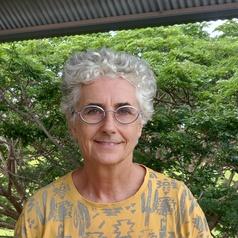
Cat Kutay
Lecturer, Faculty of Science and Technology, Charles Darwin University, University of Technology Sydney
I and descended from Aboriginal and Celtic sea farers. I work at Charles Darwin University to develop online and blended learning resources using games and multimedia to provide more engaging material and practice-based learning.
My research is in the areas of: Indigenous Knowledge management including language learning using online systems and mobile apps; Human Computer Interaction, in particular the collection and presentation of information for exploration and pattern matching; Computer Supported Collaborative Learning (CSCL); Artificial agents for emergent narrative in games; and Digital History through Games Development.
Less ![]()
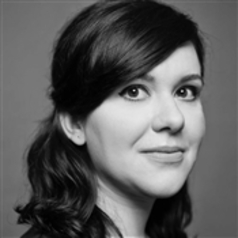
Catalina Goanta
I am Associate Professor in Private Law and Technology and Principal Investigator of the ERC Starting Grant HUMANads, focused on understanding the impact of content monetization on social media and on reinterpreting private law fairness in the context of platform governance. Between 2016-2021 I was Assistant Professor at the Faculty of Law at Maastricht University, and during February 2018 - February 2019, I was a Niels Stensen fellow and visited the University of St. Gallen (The Institute of Work and Employment) and Harvard University (The Berkman Center for Internet and Society). I'm also a non-residential fellow of the Stanford Transatlantic Technology Law Forum.
My research follows three main themes:
Content/web monetization and social media governance - the Internet is helping regular users make money in ways that did not exist 10 years ago, such as influencer marketing or ad revenue. In this context, I use doctrinal legal methods to critically reflect on existing and desirable regulatory frameworks surrounding online harms (e.g. content moderation; platform discretion; misleading advertising). To bring together complementing disciplines contributing to this field, I also established and coordinate, with Jerry Spanakis, the Computational Social Media research group.
Privacy, cryptography and decentralization - it is expected that the new age of the Internet will be rooted in technologies meant to enhace privacy, or decentralize decision-making. In this context I use legal and social science approaches to the study of cryptocommunities (e.g. dark web market places).
Digital monitoring tools for consumer protection - the enforcement of law through public interest technology is one of the most essential legal topics of the coming decade. By collaborating with experts in Natural Language Processing and Privacy and Security, I am contributing to the development of tools which can be used by public institutions (e.g. detecting influencer marketing business models on Instagram).
I have the priviledge of supervising four very talented researchers in their PhD research:
Thales Bertaglia (computer scientist working on computational social media studies), Maastricht University
Constanta Rosca (legal scholar working on dark patterns and EU consumer law), Maastricht University
Alex Sotropa (legal scholar working on computational antitrust and consumer protection), VU Amsterdam
Jacob van de Kerkhof (legal scholar working on freedom of expression in US/EU), Utrecht University
Less ![]()
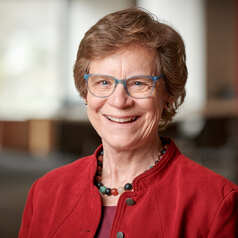
Cate Dewey
Director, One Health Institute, Assistant Dean, and Professor of Epidemiology and Swine Health Management, Ontario Veterinary College, University of Guelph
Cate Dewey, DVM, MSc, PhD, is an Assistant Dean of Special Projects, Director of the One Health Institute, and a Professor of Epidemiology and Swine Health Medicine in the Department of Population Medicine at the Ontario Veterinary College, University of Guelph, Canada. Her current research utilizes a One Health approach to prevent zoonotic diseases in vulnerable populations. Previously, she explored the connections between swine health, disease management, and welfare.
Dr. Dewey has successfully supervised 32 doctoral and 20 master’s students, and she has published over 230 peer-reviewed articles. At the University of Guelph, she has served in key leadership roles, including Chair of the Department of Population Medicine and Associate Vice-President Academic.
As the inaugural Director of the One Health Institute, she was instrumental in launching new graduate programs and Canada’s first Bachelor of One Health degree. She is currently developing a series of micro-credentials aimed at professionals across various sectors, including government, non-profits, academia, and private industries, with the first course set to launch in February 2025.
Less ![]()
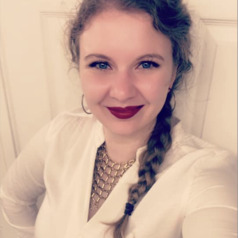
Cate Cleo Alexander
PhD Candidate, Faculty of Information, University of Toronto
Cate Cleo Alexander (she/her) is a PhD Candidate in the Faculty of Information at the University of Toronto. Prior to U of T, Cate obtained a BA Combined Honours in History and Classics and a MA in Digital Humanities at the University of Alberta. Her lifelong passion for history has taken her from archaeological field digs in Greece and Italy to the digital realms of online archives. Cate's doctoral research examines digital public history through affect and political economic theory in order to establish a better understanding of how platforms influence the production, distribution, and consumption of public history. Cate's research was generously supported by SSHRC in both her Masters' and her PhD, and she is the coordinator for the GLAM Incubator at the University of Toronto.
Less ![]()
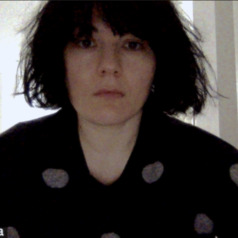
Caterina Nirta
Lecturer in Criminology, Royal Holloway University of London
My research sits broadly within 19th and 20th century continental philosophy, sociology of time, feminist theory, gender and sexuality, trans theory, body theory, humanism, posthumanism, antihumanism, materialisms, narratives of disobedience and deviance. Generally interested in relations between normativity and various forms of individual, social, legal, corporeal disobedience.
A lot of my work focuses on trans embodiment and gender recognition and I have published widely on these topics.
Less ![]()
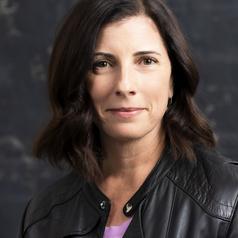
Cath Chapman
Professor, Matilda Centre for Research in Mental Health and Substance Use, University of Sydney
Cath Chapman is Professor and Director of Research Development & Strategy at the Matilda Centre for Research in Mental Health and Substance Use at The University of Sydney. She is also Program Director of the NHMRC CRE in Prevention and Early Intervention in Mental Illness and Substance Use (PREMISE, 2018-present). Cath leads an innovative program of research on the epidemiology and prevention of mental and substance use problems with a strong focus on translating evidence into practice and into the community.
Less ![]()

Cath Davies
Senior Lecturer Visual Culture, Cardiff Metropolitan University
My PhD thesis is on Death and Representation, posthumous celebrity, fabric and materiality and I teach modules on Reading Fashion, Goddesses and Monsters and visualising gothic literature. I have published on Dr Martens, Almodovar, Tim Burton, John Lennon, Michael Jackson amongst others.
Less ![]()
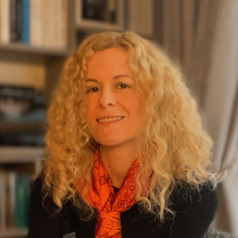
Catharine Titi
Research Associate Professor, National Centre for Scientific Research (CNRS), Université Paris 2 Panthéon-Assas
Catharine Titi, Dr iur., FCIArb, is a tenured Research Associate Professor at the French National Centre for Scientific Research (CNRS) and the CERSA, University Paris-Panthéon-Assas. For more information, visit http://catharinetiti.com.
Less ![]()
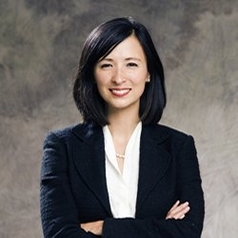
Cathay Smith
Professor of Law, University of Montana; Visiting Research Fellow, University of Oxford
Cathay Y. N. Smith is a Professor of Law at the University of Montana and Visiting Research Fellow at the Oxford Intellectual Property Research Centre at the University of Oxford. She teaches courses on intellectual property law, property law, and art and cultural property law, and her scholarship focuses on copyright and trademark law, IP theory, art law, and cultural property and heritage law. She served as the 2022 Chair of the IP Section of the Association of American Law School (AALS).
Before joining the faculty at the University of Montana Blewett School of Law, Professor Smith taught at the University of Denver Sturm College of Law as a Whiting Fellow, and practiced as an intellectual property attorney in Chicago with the law firm of Katten Muchin Rosenman LLP. While in private practice, she represented multinational technology, fashion, and entertainment and media corporations on intellectual property issues and disputes.
Less ![]()
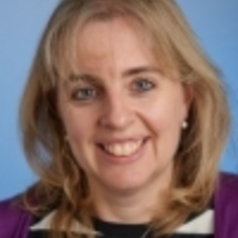
Catherine Barnard
Professor of EU law and employment law, University of Cambridge
MA (Cantab), LLM (EUI), PhD (Cantab)
Less ![]()
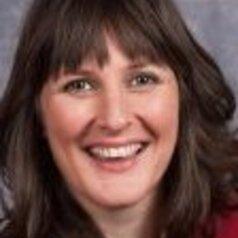
Catherine Campbell
Lecturer, Performing Arts, UniSA Creative, University of South Australia
Catherine is an actor, singer, director and educator.
Catherine is a Teaching Academic at UniSA in Performing Arts, where she Coordinates and teaches Cabaret: Context & Practice, World Music Theatre, Music Performance and Live Performance Production. UniSA offers one of only four non-auditioned experiential performing arts courses in Australia and Catherine is passionate about ensuring access to Performing Arts practice. She has also taught at University of Adelaide’s Elder Conservatorium Music Theatre Course and Classical Voice Course in Acting and Stagecraft, as well as at Federation University’s Ballarat Performing Arts Academy as Director, 3rd year Cabarets. Catherine is the Vocal Lead Teacher for the Adelaide Festival Centre: OnStage children & youth holiday program and Community program for young people in care. Catherine has also taught and directed for Tutti Arts in music theatre and cabaret.
Music Theatre includes A New Brain - Mimi Schwinn (Davine Productions) The Front - Matron, A Wild Party with Andrew Lippa, Take Flight with Richard Maltby and David Shire, Songs For A New World (Adelaide Cabaret Festival), Sweeney Todd (State Opera of SA),The Mikado (Adelaide Festival Centre), Les Miserables - Mme Thenadier (MS/Normie Rowe), Northern Lights/Southern Cross - Claire (Tutti/Interact USA), Conversations, P’Opera and Shouting Fence (Various People) and The Witch in the SA Premiere of Into The Woods. Cabaret includes: solo show My Blue Angel (written and directed by Frank Ford) at the Adelaide Cabaret Festival, Don’t Tell Mama (New York), and national tours in Australia; co-creator of comedy trio Gentlemen Prefer Curves (Adelaide Cabaret Festival, Adelaide Fringe, Melbourne Comedy Festival) and Berlin Cabaret – Greta (Adelaide Fringe, Weimar Room residency, Cabaret Festival). Acting credits include Mrs Linde in Doll’s House and A Streetcar Named Desire (Bakehouse Theatre), The Most Massive Woman Wins and Bruised Hearts Travelling Freak Show (Chop’t Logic) Sisters (CPA) and Equus (State Theatre Company).
Catherine is thrilled to celebrate over 25 years with the Chorus of State Opera of SA, and has recently performed the roles of Mrs Mullins in Carousel, Praskovia in Graham Murphy’s The Merry Widow and Cora The Boots in BOOJUM! as well as Ensemble in two productions of Sweeney Todd (dirs. Stuart Maunder, Gale Edwards), Voss and many others including the Australian Premieres of Dead Man Walking and Parsifal. For the Adelaide Festival she has appeared in Messa da Requiem (Zurich Ballet), Golden Cockerel (dir. Barrie Kosky), Requiem (dir. Romeo Castellucci), SAUL (dir. Barrie Kosky), Hamlet (dir. Neil Armfield) and Flamma Flamma (dir Nigel Jamieson). Shows with local companies include Iolanthe (Fairy Queen) & HMS Pinafore (Hebe) for G&S Society of SA, and COLE for Therry. Other performances include two international tours with Adelaide Chamber Singers, numerous corporate functions and various Country Arts SA Tours. She holds 4 Fringe awards, including the Advertiser Award for Excellence for Gentlemen Prefer Curves. Catherine sang backing vocals for Split Enz with the ASO and has never quite gotten over it.
Directing: The Hipster (development) Fringe 2020; Why Muriel Matters, Adelaide Cabaret Fringe; Dido & Aeneas, 3 Graces, Adelaide Fringe (Winner, Best Music); Assistant Director, Elixir Of Love, State Opera of SA; Stravinsky’s A Soldier’s Tale, SOL Summer Series; Echoes of the Underworld, Saving Abigial and RAW, UniSA Performing Arts.
Training: AC Arts (Acting); Hons Drama (Music Theatre), Flinders Uni; Cabaret at Yale (USA).
Catherine has two children and lives in Adelaide with her partner Paul.
Less ![]()
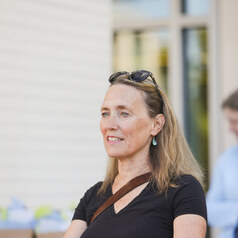
Catherine Dauvergne
Professor of Law, University of British Columbia
Professor Dauvergne has been working in the area of refugee, immigration, and citizenship law for thirty years. For a decade she held the Canada Research in Migration Law. In 2012, Dauvergne was named a Fellow of the Trudeau Foundation in recognition of her contributions to public discourse in Canada. In 2019 she was honoured with a Queen’s Counsel designation. She has written three books that take a broad perspective on the theoretical underpinnings of the interrelated fields that comprise border law, including considering how human rights principles and discourses fit into a migration and citizenship framework. Dauvergne is also an editor or co-author of five other volumes, including Canada’s immigration and refugee law casebook. Much of Dauvergne’s work engages feminist critique of the law, and the place of women in immigration, refugee, and citizenship laws. Catherine Dauvergne served as the eighth dean of the Peter A. Allard School of Law from 2015-2020 and as Provost of Simon Fraser University from 2020-22. In 2021, Dauvergne was elected a Fellow of the Royal Society of Canada.
Less ![]()
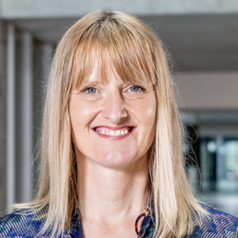
Catherine de Vries
Professor of Political Science, Bocconi University
Catherine de Vries is a Dean of International Affairs and Professor of Political Science at Bocconi University. She is also a Research Associate at the Dondena Centre for Research on Social Dynamics and Public Policy and an associate member of Nuffield College, University of Oxford. Her work can be broadly situated in the areas political behaviour, political economy and EU politics, and has appeared in leading political science journals, such as the American Political Science Review, Annual Review of Political Science, and the Journal of Politics. She has published several books Euroscepticism and the Future of European Integration (Oxford University Press, 2018), Political Entrepreneurs: The Rise of Challenger Parties in Europe with Sara B. Hobolt (Princeton University Press) and Foundations of European Politics with Sara B. Hobolt, Sven-Oliver Proksch and Jonathan Slapin (Oxford University Press, 2021). Catherine is currently working on research project (LOSS), funded through a Consolidator grant by the European Research Council, which examines the conditions under which economic hardship affects support for socially conservative political agendas.
Less ![]()
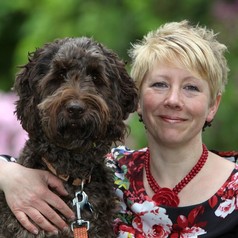
Catherine Douglas
Lecturer in Animal Science, Newcastle University
The pinnacle of my achievement to date has to be my Ig Nobel Prize, International Prize for Veterinary Medicine .
More serious roles and responsibilities are as a Lecturer at Newcastle University in Animal Science, Agriculture and Joint Honours in Science. I lecture in a range of Animal Science (Livestock and Companion) related disciplines including: Animal Welfare, Behaviour, Nutrition.
Degree Programme Director Joint Honours in Science, Newcastle University
Research Interests:
Animal Welfare and Behaviour:
Human-animal interaction and its affects on welfare, behaviour and production in the dairy herd.
Cognitive bias to measure affective state. Can whether an animal perceives its glass half full or half empty, be measured and if so can it inform on the welfare of the animal under different management regimes.
Companion animal behaviour and welfare
Student Transition:
Peer Assisted Learning, and extended inductions to reduce attrition and increase success in non-traditional learners in HE.
Less ![]()
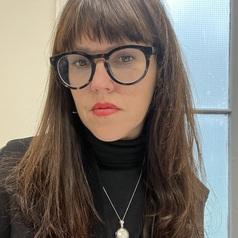
Catherine Durose
Professor of Public Policy, University of Liverpool
Catherine is Professor of Public Policy, and Co-Director of the Heseltine Institute for Public Policy, Practice and Place at the University of Liverpool. She is recognised as a leading expert on urban governance and public policy, and has written widely on policy design and implementation, devolution, urban transformation, social and democratic innovation, and participation. Empirically, her work has focused at urban, city-regional, local, and neighbourhood levels. Catherine is particularly well-known for her work on co-production, how bringing together different forms of expertise can provide an innovative means of addressing complexity and uncertainty in governance and policy.
Less ![]()
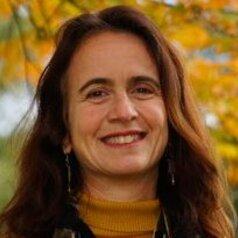
Catherine Graham
Senior Researcher at Swiss Federal Institute for Forest, Snow and Landscape Research and Adjunct Associate Professor of Ecology and Evolution, Stony Brook University (The State University of New York)
I study how the spatial and temporal arrangement of habitats influences biological diversity. This issue relates to a number of fundamental questions in ecology that have challenged scientists for decades. Questions include: Why do mountains have extraordinary biodiversity? What is the importance of niche partitioning in maintaining biological diversity? and How does the climate history of a region influence its current patterns of biological diversity? Addressing these types of questions requires integration from a range of fields, including ecology, evolutionary biology, biogeography, climatology, geology and conservation biology because mechanisms that influence biological diversity are played out across a range of spatial and temporal scales. Much of my current work is focused on the role of plant-hummingbird interactions in the generation and maintenance of high tropical diversity; however, I also work on multiple other systems and questions including drivers of global diversity and, most recently, of European montane plants.
Less ![]()
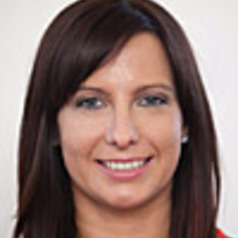
Catherine Harris
Catherine studied Geography (MA Hons) at the University of Oxford, graduating in 2005. She completed a MA in International Studies at the University of Birmingham in 2007, which was awarded with distinction. She gained her PhD from the University of Birmingham in 2012.
Her PhD investigated the experiences of Polish migrant entrepreneurs in the West Midlands region of the UK and is the first large-scale study of its kind. Her research has attracted interest internationally and has been disseminated in both the print and broadcast media.
Catherine's expertises lie in the fields of entrepreneurship and enterprise, ethnic entrepreneurship, social difference, EU enlargement, EU migration, Polish migration and the Polish community in the UK.
Methodologically, Catherine’s interest is in qualitative and ethnographic research.
Less ![]()
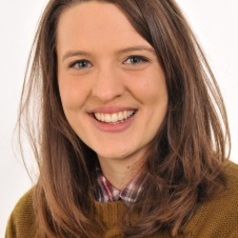
Catherine Hartung
Senior Lecturer in Education, Swinburne University of Technology
Catherine is a Senior Lecturer in the Department of Education at Swinburne University of Technology. She is an educational sociologist with expertise in children and young people's citizenship, participation, rights, diversity, and wellbeing.
She is the author of 'Conditional Citizens: Rethinking Children and Young People's Participation' (2017) and co-author of 'Young People, Citizenship and Political Participation: Combatting Civic Deficit?' (2017).
Less ![]()
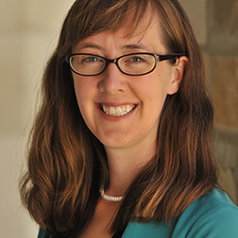
Catherine Hausman
Assistant Professor of Public Policy, University of Michigan
Catherine H. Hausman is an Assistant Professor in the School of Public Policy and a Faculty Research Fellow at the National Bureau of Economics Research. Her work focuses on environmental and energy economics. Her research has appeared in the American Economic Journal: Applied Economics, the American Economic Journal: Economic Policy, and the Brookings Papers on Economic Activity. Recent projects have looked at the economic and environmental impacts of shale gas; the market impacts of nuclear power plant closures; and the effects of electricity market deregulation on nuclear power safety. Prior to her graduate studies, Catherine studied in Peru under a Fulbright grant. She has taught Statistics, a policy seminar on Energy and the Environment, and a course on Government Regulation of Industry and the Environment. She holds a BA from the University of Minnesota and a PhD from the University of California, Berkeley.
Less ![]()
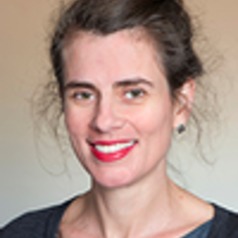
Catherine Kevin
Associate Professor in Australian History, Flinders University
Catherine Kevin is an Associate Professor at Flinders University who teaches and researches in the fields of Australian history and feminist history, particularly the politics and experience of the reproductive body, gendered violence and cultural histories of Indigenous-settler relations. She has published many journal articles and book chapters on these topics, in addition to her book Dispossession and the Making of Jedda: Hollywood in Ngunnawal Country which was published in 2020 (Anthem Press). She is currently working on an ARC funded history of domestic and family violence in Australia since 1850 with Ann Curthoys and Zora Simic.
Less ![]()
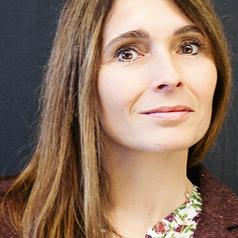
Catherine Laprise
Professeur UQAC, Co-titulaire de la Chaire de recherche en santé durable du Québec et Directrice du Centre intersectoriel en santé durable de l'UQAC, Université du Québec à Chicoutimi (UQAC)
Less ![]()
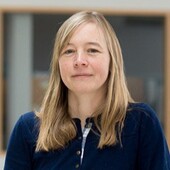
Catherine Leviten-Reid
Professor of Community Economic Development, Cape Breton University
Less ![]()

Catherine Luther
Professor of Journalism & Media, University of Tennessee
Before returning to the academic world for her doctorate, Dr. Luther worked both in the United States and in Japan as a producer of television news. She teaches in the areas of global communication, audience analytics, media and diversity, communication and information science theories, and research methods. Her research primarily focuses on digital media, propaganda, and disinformation, digital activism, as well as media-related issues on diversity, equity, and inclusion.
Dr. Luther received her Ph.D. from the University of Minnesota Twin Cities and her Executive MBA from the University of Tennessee. She has published in such journals as the Journal of Communication, Journalism & Mass Communication Quarterly, International Journal of Communication, and SN Social Sciences. She has had four books published. One entitled Press Images, National Identity, and Foreign Policy was published by Routledge in 2002. The others are three editions of her co-authored book, Diversity in U.S. Mass Media (2024; 2017; 2012) published by Wiley-Blackwell.
As Principal Investigator, Dr. Luther has been leading a team of researchers on a U.S. Office of Naval Research Minerva grant project regarding the influences of media-propagated propaganda and disinformation in former Soviet Union countries.
Dr. Luther has received several awards including the University of Tennessee’s Chancellor’s Award to attend HERS Institute at Bryn Mawr, National Association of Television Program Executives (NATPE) Faculty Fellow Award, SECAC Academic Leadership Development Award, University of Tennessee Notable Woman Award recognizing excellence in administration, research and teaching, the American Press Institute, John Ben Snow Memorial Trust Fellowship Award, the Radio Television News Directors Foundation/Knight Foundation’s Educator in the Newsroom Fellowship Award, the International Radio and Television Society Faculty/Industry Award, the University of Tennessee, College of Communication and Information Bud Minkel International/Intercultural Award, and the University of Tennessee, College of Communication and Information Outstanding Faculty Research Award.
Dr. Luther received the Fulbright-Masaryk Distinguished Scholar Award in 2023 to teach and conduct research at Masaryk University in Brno, Czech Republic. This was the second Fulbright award for Dr. Luther. In 2007, she was awarded a Fulbright Research Grant to conduct research in Japan.
Less ![]()
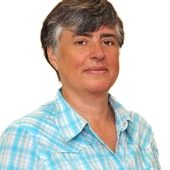
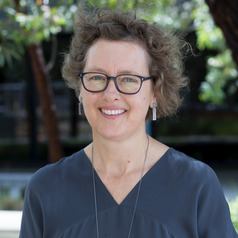
Catherine Murphy
Senior Lecturer in Urban Planning and Design, Monash University
Catherine Murphy is a research leader in the Monash Urban Lab in the Department of Architecture at Monash University, where she co-develops projects that combine practice-based design research with policy studies towards the regeneration of cities and regions. She was a researcher with the Cooperative Research Centre for Water Sensitive Cities where she focused on better integration across water planning, urban planning and design. She collaborates with architectural researchers on research projects on alternative processes for developing inclusive housing and ecological cities, the outcomes of which include industry reports and public exhibitions. She is co-editor (with Nigel Bertram) of the book In Time with Water: Design Studies of 3 Australian Cities.
Less ![]()
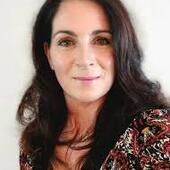
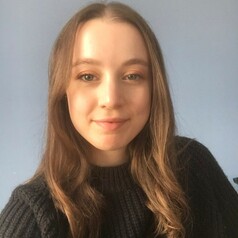
Catherine Purse
PhD Candidate, Quadram Institute
Catherine Purse is a PhD student at the Quadram Institute, where her project investigates age related changes to the gut microbiome, the immune system, and the contribution of these changes to neurodegenerative diseases such as Alzheimer's Disease.
Less ![]()
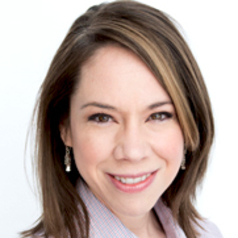
Catherine Régis
Professeure titulaire, Faculté de droit, Chaire de recherche du Canada en droit et politiques de la santé, Centre de recherche en droit public, Université de Montréal
Je suis une professeure spécialisée en droit et politiques de la santé, titulaire d'une Chaire de recherche du Canada en droit et politiques de la santé (chairesante.ca), co-responsable du Hub santé - politique, organisations et droit (h-pod.ca) et chercheuse au Centre de recherche en droit public (CRDP), à l'Observatoire international sur les impacts sociétaux de l'IA et du numérique (OBVIA), au Centre de recherche du Centre hospitalier de l'Université de Montréal (CRCHUM) et au Mila. Mes intérêts de recherche couvrent notamment la gouvernance des systèmes de santé, l'innovation numérique et l'intelligence artificielle et l'action normative de l'Organisation mondiale de la santé.
Less ![]()
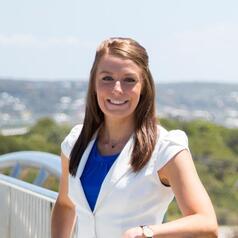
Catherine Richards1
Research Affiliate, Centre for the Study of Existential Risk, University of Cambridge
Catherine’s postdoctoral research at CSER, Cambridge, focused on developing our understanding of global risks, governance mechanisms and technical solutions in relation to complex critical infrastructure systems. Her work primarily spanned environmental risks, future foods biotechnology and artificial intelligence alongside complementary digital technologies across the water, energy and food sectors as well as the transport, waste and space sectors.
Catherine completed her PhD in Engineering at Cambridge on energy transition, climate change and agri-food supply chain risk. She also holds a BEng(Civ) and BEng(Env), both with First Class Honours, Dean’s Medal and University Medal, from University of Newcastle, Australia.
Catherine is now a management consultant at a top tier firm serving investors, corporates and startups in the real asset space (natural resources, infrastructure, real estate and related material supply chains) on strategy, transactions and sustainability. She leverages 10+ years’ industry experience at the intersection of real assets, technology and sustainability, having previously advised climate tech startups, dappled in real estate and proptech, and worked as an engineer at a top Fortune 500 company in the energy sector and government corporation in the water sector.
Catherine has been published in the Nature portfolio, is a John Monash Scholar and was recognised in Forbes 30 Under 30 for Industry Innovation.
Less ![]()
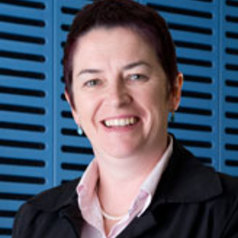
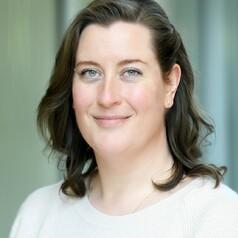
Catherine Sweet
A certified Speech and Language Pathologist in Canada and the United States, Catherine is a specialist in North American English phonology. She leads the Accent Clinic at Dalhousie University, serving members of the public who have difficulty being understood because of their accent, and also training Speech and Language Pathology graduate clinical students. Since 2018, she has been an adjunct professor teaching Dalhousie's CMSD 5020, Clinical Phonetics, where Speech and Language Pathology and Audiology students learn to describe, transcribe, and apply the science of speech sounds to their clinical practice.
Catherine is an advocate for Canadian Basic Income, and serves as the Secretary of BIGNS - Basic Income Guarantee Nova Scotia, an affiliate of Coalition Canada.
Less ![]()
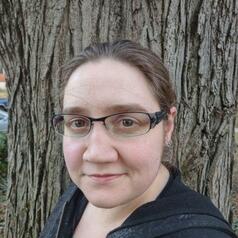
Catherine Tylan
Postdoctoral Researcher in Biology, Penn State
Catherine Tylan works primarily in physiology and ecology, answering questions regarding the effects of stress, invasive species, and temperature on the physiology, metabolism, and immune function of wild animals. Recent work has also included assessing interactions between wildlife, their environment, and ectoparasite infestations.
Less ![]()
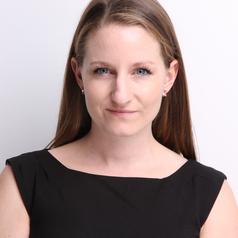
Catherine Vanner
Assistant Professor of Educational Foundations, University of Windsor
Catherine Vanner is an Assistant Professor of Educational Foundations and the Vice President of Research and Innovation Research Chair for the Faculty of Education at the University of Windsor. She uses qualitative and participatory research to study the relationship between gender, education, and violence in diverse country contexts.
Less ![]()
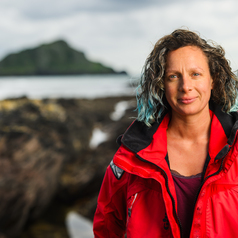
Catherine Wilding
Senior Research Assistant, Marine Ecology, Marine Biological Association
I am a marine ecologist at the Marine Biological Association (UK). My research focusses on restoration, cultivation and harvesting management of marine resources, such as kelp forests.
With a keen interest in applied research outcomes, I work closely with industry partners. My work also explores how benthic ecosystems respond to environmental change, such as climate change and marine heat waves, and seeks solutions to improve marine stewardship.
I hold a Master’s in Research degree in Marine Biology, commercial boating and scientific diving qualifications.
Less ![]()
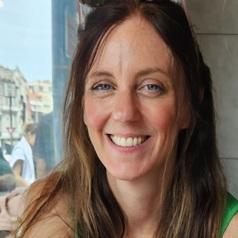
Catherine Wilson
Reader in Environmental Hydraulics, Cardiff University
My research area is environmental hydraulics in river systems with an emphasis on nature-based solutions for flooding, the hydro-environmental impact of in-stream installations (e.g. turbines, weirs, culverts, gates) and microplastic pollution. I have worked in the field of environment hydraulics and flooding for over 25 years and my research bridges the disciplines of Civil Engineering and Environmental Science. I was awarded Chartered Engineering status (CEng) in 2008.
Less ![]()
- Market Data

















